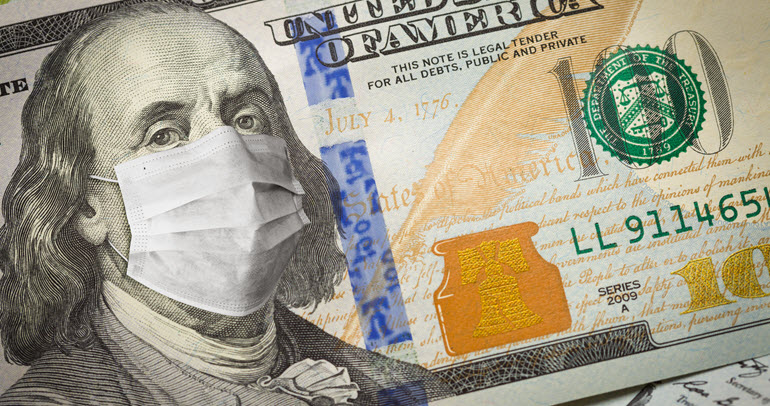
The United States is officially in a recession. Although the effects and severity with which the recession hits each industry will slightly differ, each will be impacted and must adapt to survive. In order for the economy to recover quickly, we need people to jump in as soon as they can and start spending as opposed to saving. After all, 73%1 of US GDP is driven by consumer spending. But with no answer to the question of when consumers will start spending, we have to look for clues elsewhere. One of the biggest indicators of where the economy will go moving forward are personal savings rate (inverse relationship).
Historically, savings rates spike in the aftermath of crises. In a financial downturn consumers initially reduce discretionary spending. But as incomes are often reduced, many then have to spend a higher portion of their total income on discretionary spending. This creates a temporary fall in savings rates immediately following the spike. When incomes bounce back, consumers then hunker down and save. This is a metric to watch closely in the coming months.
In the 2000s, the savings rate was around 4% until the market bubble burst at which point savings increased in the wake of that crisis. In the 2005–2007 recovery, there was significant concern the US had a savings problem because the savings rate went too low. That was solved—in the worst way—with the crash of 2008, when savings rates spiked to 12% by 2012. It cut nearly three percentage points off the nation’s GDP, when savings rates rose from 8% to 12%. The relatively stable 6%–8% savings rate since then has given us a great economy up until now. We want to see that remain stable, not increase, to speed recovery.
Each industry has its own nuance and is being hit slighting differently in the current crisis. Let’s look at a few of our financial services sectors and how they’re being impacted:
- Banking: Branches are closed in many states accelerating the move to a broader array of digital services. Many areas of digital service had plateaued, but now banks that have not managed digital services well will suffer. Lending is experiencing a wide array of impacts with mortgage servicers under tremendous pressure due to COVID-19-related forbearance. The CARES Act has brought a deluge of small business lending that is stress testing systems.
- Wealth Management: Traders are moving to distributed environments, such as running out of satellite offices instead of more-concentrated in-person spaces. Investors and their financial advisors alike find themselves all suddenly working from home. At the same time, global shareholding disclosure (GSD) rules that—among many other things—reduce the threshold at which holdings must be revealed (to increase transparency as markets drop) are causing asset managers a lot of extra work. Such extreme stress and remote work can tip the scale of vulnerability for errors and for fraud.
- Property & Casualty Insurance: In personal lines, one of the biggest impacts for an industry that has heavily relied on agents has been the accelerated adoption of self-service sales and service channels. Also, carriers are proactively offering partial refunds/credits on auto premiums for those sheltering in place and, thus, driving far less. Commercial writers are under pressure from the government to cover retroactive business interruption losses (which exceed $200 billion per month just for small businesses). The industry is responding in many ways, including supporting a federal relief fund for businesses and workers affected by the crisis.
It has never been more important to know what consumers, clients, prospects and other key populations think, but as one of my colleagues recently wrote, “It is the right time to do something, but make sure it’s a thoughtful something.” In times like this, there can be more questions than answers. But rest assured that our experts are in the center of the storm and well connected with what is going on across the industry. We can help you continue to run your business effectively and prepare for the uncertain future. If you are trying to figure out what research you should, you can, and is OK to do now, we can help you maneuver through this. Send us a note to set up a call with one of our financial services experts.








